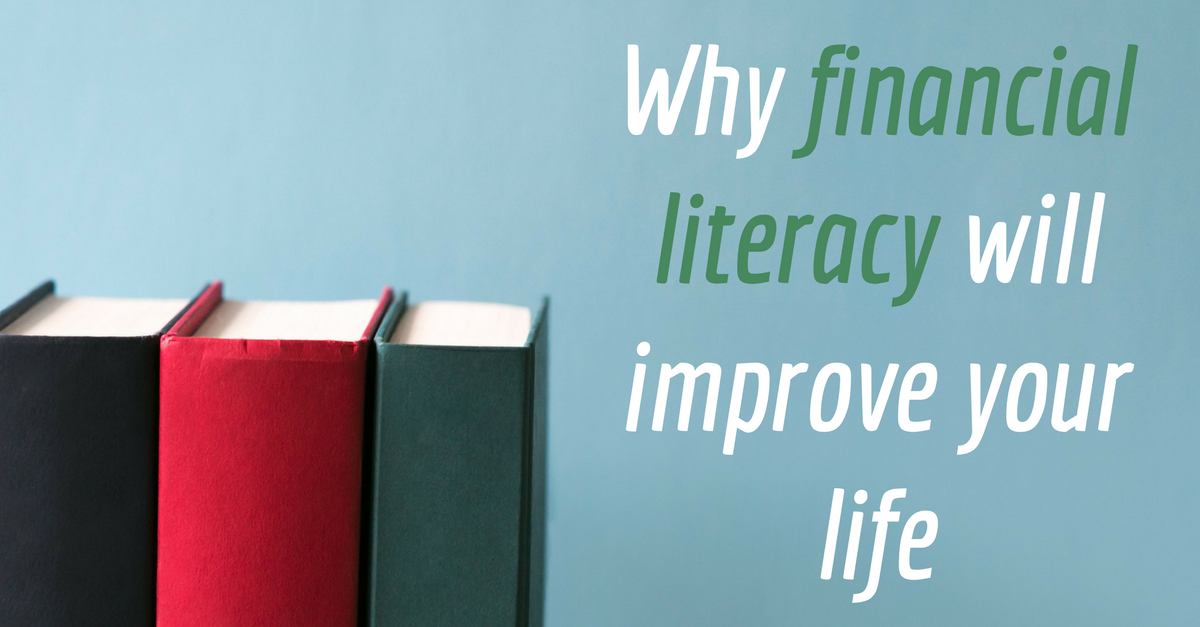Financial literacy is a skillset that bridges the gap between you and financial stability. It opens doors to opportunities and cuts the binds of financial stress. It’s the knowledge you need to employ money to work for you, rather than you work for money.
In other words, it’s an absolute must-know if you want to be financially successful.
Making money isn’t and shouldn’t be your sole goal in life. But money can and does make life easier. Wealth can relieve stress and create time that can be spent on what matters most to you.
Financial stress is a heavy burden that too many people have to bear. Are you buried in student loans or living paycheck-to-paycheck? It’s a frustrating, helpless feeling.
But imagine your life without financial stress. That weight being taken off your shoulders. A fresh, clear mind that can focus on your interests and passions. A sturdy confidence in your present and future life. That’s where financial literacy comes into play.
What does financial literacy look like? Here are just a few common examples:
- Knowing the key differences between a checking and savings account
- Understanding the purpose and concept of 401k
- Being able to determine whether a Roth IRA or standard IRA is more advantageous
- Understanding the factors that determine your credit score
It’s really not as complicated as it sounds. Being financially savvy is not just for bigwigs in expensive suits. You don’t have to work on Wall Street to be financially literate. Basic, money-efficient practices can eliminate your financial stress and boost your happiness.
The pursuit of financial stability may feel like swimming upstream, but imagine financial literacy as your canoe and paddle.
How do I reach financial literacy?
We’ve established the importance of adding financial literacy to your knowledge base. Now you might be asking, “How do I actually do that?”
You’re already off to a good start by reading this post, as you’re beginning to expand your awareness of the topic. Now, you need to start getting the basics down:
- Budgets
- Bank accounts
- Credit Cards & Credit Score
- Brokerage accounts
- Insurance
I’ll provide a post on each of these topics in the coming weeks. But in the meantime, here’s a quick overview. Use these key points to begin researching and developing your financial literacy.
Budgets
A budget is a tracker for your inflows (income) and outflows (expenses). They provide you with a personal schematic of your financial situation. Through budgeting, you’ll determine your necessary expenses and discretionary expenses. Your financial snapshot will allow you to tinker and tweak your lifestyle in order to minimize costs and maximize wealth.
Deposit Accounts
This one should sound familiar unless you’re an arms dealer than only transacts in hard cash. The two traditional deposit accounts to focus on are a checking account and savings account. A checking account should be utilized for active expenses, while a savings account should house your emergency fund.
Credit Cards & Credit Score
Ahh, the wonderful world of credit cards. The average American has at least two credit cards, so I think it’s safe to assume you’ve at least heard of them. When you use a credit card, you’re essentially buying things with credibility. Whatever lending institution sponsors your card is assuming you are a credible consumer.
Credit cards are great if you know how to properly use them. But credit card debt can be a fickle beast if left unchecked. Check out this post on bank accounts for more information on deposit accounts and credit cards.
Credit cards, along with other forms of debt, are the main drivers of credit scores. Your credit score is important. It’s a number that quantifies your credibility. Although the number can seem arbitrary, there are several key factors that influence its rise and fall.
Brokerage Accounts
As I’ve said before, you don’t have to work on Wall Street to have financial know-how. That includes investing. Whereas bank accounts are best used for short-term money storage, brokerage accounts provide the best housing for your long-term investments. Long-term investing is paramount to future financial stability and future goals.
Insurance
Basic understanding of insurance can save you a lot of hassle and anxiety. You should be familiar with the concepts of premiums, deductibles, and coverages. Although it’s a necessary expense, your insurance costs can be greatly reduced if you find the right policy.
What’s the purpose of financial literacy?
As I’ve said, financial literacy is a skillset. Just like any other skill, it needs to be developed and then put to use. Let’s use cooking as an example. Cooking is a skill that takes practice. But you don’t cook just to throw your meal away afterward. You cook to sustain yourself, feed others, eat healthier, relieve stress, and all the other positives of knowing how to cook. The point is that it’s a skill that’s used for a purpose.
The purpose of financial literacy is to ultimately achieve financial stability. What’s financial stability? It’s the life-status of having enough money to at least meet all of your needs (i.e. rent, groceries, insurance, utilities, etc.).
For more information on achieving financial stability, take a look at this post. Also, continue researching the above topics (Credit, Brokerage accounts, etc.) in order to develop your financial literacy. Financial literacy takes time and effort, but you should consider it an investment in your future.

Carter Kilmann
I’m a professional freelance writer for hire, specializing in personal financial development. I offer blogging, article writing, and copywriting services. My industry experience includes Private Wealth Management and Investment Banking. I’m also an avid sports fan and love anything and everything competitive.


0 Comments